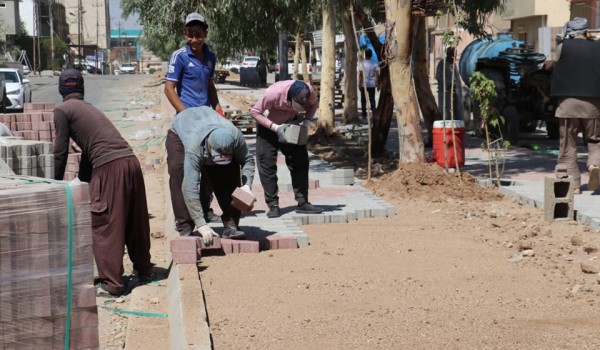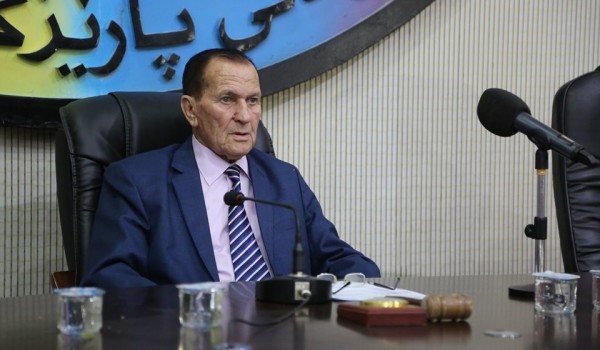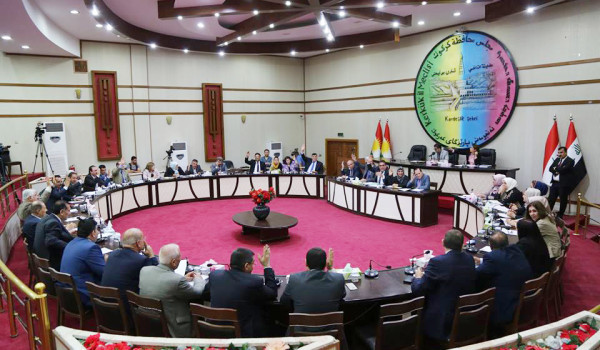A meeting of the Kirkuk provincial council has cost the Iraqi government two billion and 451 million Iraqi dinars, in addition three million dinars for mobile recharge cards and another 590 million dinars in fuel expenses for the members of the provincial council. Nevertheless almost one third of the council members have never showed up.
This extravagance which goes unpunished is taking place at a time councilors have been tasked to resolve four fateful issues, yet none of these issues were dealt with.
The Kirkuk provincial council sessions were stalled following the October 16, 2017 events due to political and military disputes between Baghdad and Erbil as well as long-standing disputes between the different components of the province. Since then, the quorum required for a regular session was not completed except for a single time which also did not come up with important decisions.
On April 9th, 2019, the Kirkuk provincial council convened for the first time since the October 16, 2017 events. The meeting was devoted to discuss a range of issues, including the budget allocated for the province.
21 out of the total of 41 council members attended the meeting which was chaired by the interim head of the council.
The meeting decided to reactivate the council's committees and replaced the head of the council’s financial committee, according to councilor Ahmed al-Askari.
Also discussed was the province's share of the petrodollar budget and the mechanism that should be adopted to spend the budget on service projects. A voting on the bill was delayed until next week’s meeting.
However, the planned meeting was not held due lack of quorum. Council member Babakir Sdiq, speaking to KirkukNow said, “The absence of members at the meeting is a violation of the law, because we set a date for the meeting in a vote in the previous meeting.”
This became the first and last meeting of the provincial council during the past two years, despite numerous failed attempts to convene.
The Kirkuk provincial council consists of 41 members; the Kurdish Brotherhood list (26 members), the Turkmens with both Sunni and Shiite sects (9 members) and the Arab bloc (6 members). A quorum is achieved in the presence of at least 21 members.
13 council members have never participated in any meetings or activities for the past two years.
11 of the absentees are pro-KDP (Kurdistan Democratic Party) members which decided to boycott the council meetings; some of these members currently reside in Kurdistan Region cities or outside Iraq. The list of absentees also include acting head of the council Rebwar Talabani-currently settled in Erbil- and another from the Chaldean-Assyrian component who lives abroad.

Kirkuk- A residential street rehabilitation project in Rahimawa neighborhood, August 2019 Photo: provincial council media
Despite than at least 27 council members live in Kirkuk and show up at the provincial council office, they have failed to hold a regular meeting.
Each member of the Kirkuk Provincial Council receives a monthly salary of 2.3 million IQD in addition to allocations estimated at 600,000 IQD for transportation costs; meanwhile, another 90,000 dinars per month goes for Internet and mobile recharge cards.
According to information obtained by KirkukNow, during the past two years in which a single council meeting was held, the total sum of the money allocated for the salaries, transportation costs and internet and mobile recharge cards of all the councilors have reached nearly 3 billion Iraqi dinars.
A corruption goes unpunished
According to Iraqi laws, including the Provincial Councils’ Act No. 21 issued in 2008 for provinces not associated within a region, the provincial councils are the supreme legislative and supervisory authority within their borders, and have the authority to legislate internal laws to administer their areas.
The Kirkuk provincial council was established in accordance with Resolution 71 issued in 2005 by Paul Bremer the then Administrator of the Coalition Provisional Authority of Iraq.
Jamal Mawloud Bapeer, 82, who was elected as interim head of the Kirkuk provincial council in January 2019, says “according to the internal regulations and of procedure of the provincial council, a council; member’s absence period should not exceed 21 days, or else he or she would be held accountable.”
He added that “because of disputes between the Kurdistan Democratic Party (KDP) and the Patriotic Union of Kurdistan (PUK), or between Arabs and Turkmens, some members of the council do not attend the sessions, and this leads to the disruption of the work of the council.”

Four Key tasks awaiting the council
During the past two years, the council was expected to tackle four key issues: the ratification of the budget, the election of a new governor, the follow-up of the work of government departments and ensuring accountability, yet none of these was fulfilled.
As the Council failed to complete the quorum to elect a new governor, it also failed to approve the province's 2019 budget. Eventually the budget bill was approved after collecting signatures and resorting to Baghdad authorities.
Despite all this, there is a few number of council members who go to their offices on a daily basis and carry out routine tasks.
According to KirkukNow information the Iraqi Commission of Integrity has moved the case of councilors do not attend the council meetings, but it is unclear whether such procedures would reactivate this crucial institution.





